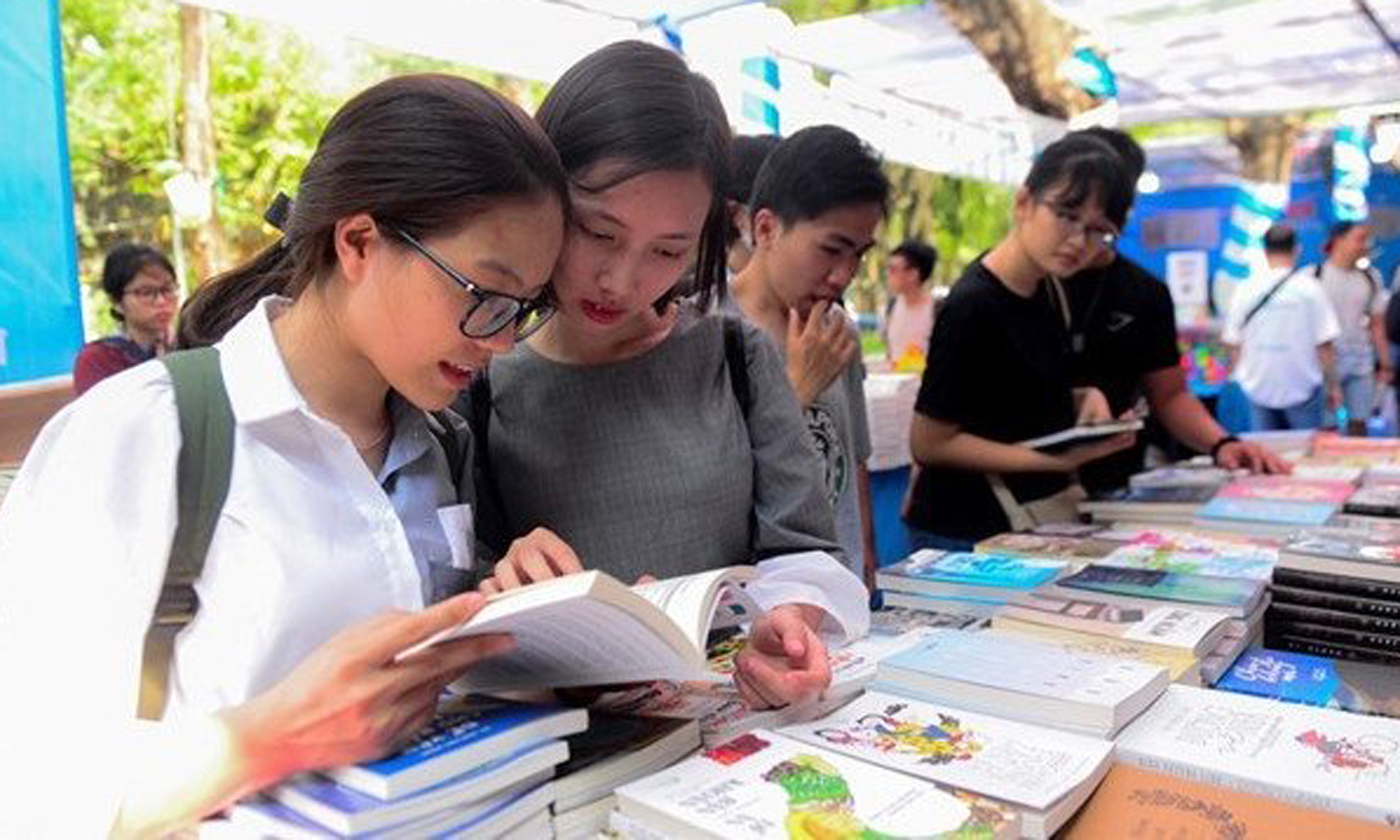Fostering a reading culture in Vietnamese society
ABO/NDO – The Prime Minister signed a decision on February 24, 2014 to designate April 21 as the Vietnam Book Day with an aim to honour the value of books in society, while raising the responsibilities of the agencies and sectors concerned in cultivating and fostering a reading culture in Vietnam.
 |
| Visitors at the Autumn Book Fair 2018 in Hanoi (Photo: VNA) |
Since it was launched five years ago, the Vietnam Book Day has become an annual cultural activity attracting a lot of appreciation and interest from the community and gaining positive outcomes.
Accordingly, over the past five years, some 160,000 publications have been sold with 1.9 billion copies across the country. More than 11 million books and publications have been donated to poor students and local libraries nationwide. Over 240,000 contests, seminars and workshops have been held on the topic of books and reading culture. The Day has received the participation of up to 66 million students and 4.7 million teachers and teaching staff. Meanwhile, a string of activities have been organised continuously to help readers gain easier access to knowledge.
In Hanoi alone, a myriad of activities have been staged annually, including the Spring Book Fair, the book fair at Thang Long Imperial Citadel, and a Book Day at Thong Nhat park. During these events, the organising board has received tens of thousands of books from publishing house and social organisations, which will be channelled to libraries in mountainous and remote areas, and sea and island regions.
Recently, the Department for Publication, Print and Issuing under the Ministry of Information and Communications honoured 84-year-old retired teacher Dao Quang Huy from Bac Giang province, who contributed part of his salary to buy books for the library in Song Khe 1 commune. Despite his old age, he bicycled to neighbouring areas to buy old books, including sets of Braille books for visually-impaired readers, contributing to raising the total number of books at the library to nearly tens of thousands.
However, there are also shortcomings in the organisation of events and activities on fostering a reading culture. These shortcomings are consequently a result of inappropriate attention from the organisers and the ineffective operation of libraries at schools and localities.
A survey carried out by the Books for Vietnam’ Rural Areas Programme at 50 schools in Thai Binh province has revealed that, despite the province being rated as one of the localities with the most outstanding achievements in encouraging a reading culture and the highest number of students passing the national university entrance exam, the number of books read by locales is still low as each student in Thai Binh’s rural areas reads only one book a year, while the figure is five for those living in towns and urban areas.
To address the problems, experts have stressed that it is important to popularising the role of books and the reading habit in the community, and make a proper investment and sound policies on raising the position of libraries and enhancing the capacity of those who are working to bring books closers to readers.
Innovative steps should be taken in organising events and activities on introducing books and promoting a reading culture. Outstanding individuals and collectives who have made significant contributions to encouraging a reading habit in their residential areas should be timely honoured in order to spread their new ideas and initiatives in the community.
(Source: NDO)
 về đầu trang
về đầu trang







